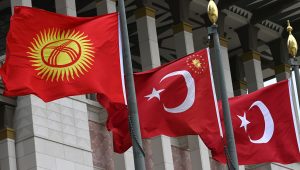Orhan Inandi disappeared from the Kygyz capital, Bishkek, on May 31 and reappeared in Turkish custody on July 5. His lawyers say that he was tortured in the 35 days between his disappearance and reappearance in a Turkish TV broadcast with Turkish President Recep Tayyip Erdogan lauding the country’s intelligence agency for bringing Inandi, whom he characterized as a “top Central Asian leader of FETO,” back to Turkey.
Inandi, a Turkish-born Kyrgyz citizen, was the founder of the Sapat system of schools in Kyrgyzstan. The Sapat system, previously operating under the name Sebat, operates more than two dozen schools in Kyrgyzstan, including Ala-Too International University in Bishkek, and is linked to the global network of schools with ideological ties to Fethullah Gulen.
Ankara blames a 2016 attempted coup on Gulen and FETO (“Fethullah Terrorist Organization”). FETO is not widely recognized as a terrorist organization. As put in the U.S. State Department’s 2019 country report on terrorism for Turkey:
“FETO” is not a designated terrorist organization in the United States. The government continued to detain and arrest Turkish citizens, as well as foreign citizens resident in Turkey – including U.S. citizens and locally employed staff at the U.S. Mission to Turkey – for alleged “FETO” or terrorism-related links, often on the basis of scant evidence and minimal due process.
Inandi’s case illustrates an even more problematic trend of Turkish intelligence nabbing suspected “FETO” members from wherever in the world they happen to be. For example, around the time Inandi disappeared in Bishkek, Gulen’s nephew, Selahaddin Gulen, who had been living in Nairobi, Kenya, turned up in Turkish custody in handcuffs nearly a month after his own disappearance.
Now that Inandi’s whereabouts are known, critical questions of how he ended up in Turkey and what kind of treatment he has been subjected to loom large.
As reported by 24.kg, a Kyrgyz lawyer, Taalaigul Toktakunova, citing a Turkish colleague, claimed that Inandi was tortured, including his arm being broken. When Inandi appeared in the broadcast with Erdogan earlier this month, viewers noticed that one of his hands appeared irregularly swollen, suggesting an injury. Toktakunova’s statement, posted on Facebook, said that Inandi maintains his innocence: “He did not confess to anything because he is not a member of any illegal organization and did not commit any illegal acts. His fault is that he opened the best schools on the territory of Kyrgyzstan, gave the graduates of lyceums an opportunity for a brighter future.”
Meanwhile, RFE/RL reported that Inandi’s Turkish lawyer, Halil Ibrahim Yilmaz, says that his client was detained in Kyrgyzstan by three men speaking Kyrgyz, suggesting they might have been Kyrgyz police or security officers.
Kyrgyz authorities insist that they were not involved in Inandi’s kidnapping, claiming instead to have repeatedly warned him of the risk of kidnapping. Bishkek issued a formal note of protest to the Turkish ambassador. The Turkish ambassador denied Inandi had been kidnapped from Kyrgyz soil.
Yilmaz told RFE/RL that Inandi was blindfolded and driven by car for several hours before being flown to Turkey.
Aside from Inandi’s link to Gulen’s movement in the broadest sense, it’s not clear what evidence Turkish authorities have against him regarding anything approaching terrorism or involvement in the 2016 coup attempt. Inandi moved to Kyrgyzstan in the early 1990s and became a Kyrgyz citizen in 2012.































